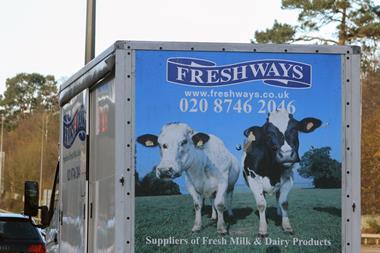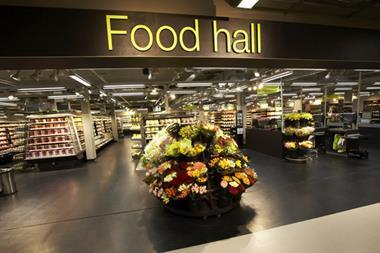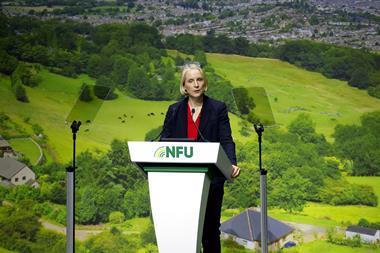
Supermarket buyers are using increasingly onerous justification processes to delay and thwart supplier cost price hikes, negotiations experts have claimed.
The justification forms are unprecedented in their complexity, they say – asking for cost breakdowns for individual ingredients, packaging, storage, transportation, as well as manufacturing and labour overheads and profits margins. In the case of Morrisons, it requests details of the last three price increases on each item, while Sainsbury’s has requested the date of the last price increase.
M&S even asks for a complete breakdown of labour costs: the number of permanent hours, what percentage are for M&S supply, as well as wage costs, National Insurance payments, weekend rates and more.
Such requests, often involving confidential information, represented “a level of detail only an ‘open book’ suppliers would be expected to share and is not just onerous but outrageous,” said Ged Futter, an ex-Asda buyer who runs The Retail Mind sales negotiation consultancy.
Demands for commercially sensitive information from brand owners are “particularly invidious”, added David Sables, CEO of Sentinel Management Consultants, “because they come from customers who run competitive own-label products and may be interested in gaining leverage via another branded supplier”.
Signoff processes are also lengthening. At Asda each form needs approval by a vice president. “With the level of increases happening, will a vice president really be expected to sign off every single price increase?” asked Futter.
Morrisons has cited a “minimum 13 weeks from form submission” to approval. In a letter accompanying its ‘Blank Cost Justification Increase’ form, it warns: if “we have been unable to reach an agreement of revised terms we will consider the agreement terminated and this letter shall serve as notice to terminate pending the negotiation outcome”.
The added complexity was a deliberate ploy, Futter argued, noting “a distinct change in tactics in the past five weeks. The volume and level of increases has caused retailers to start panicking and now the mantra is delay, delay, delay!”
Some suppliers have been able to push price increases through. Last month Unilever and Nestlé revealed they were relying on pricing to boost sales growth in the third quarter, while US counterparts such as P&G, Kraft Heinz and, this week, Mondelez, also warned of continued price hikes to battle stronger-than-expected supply chain headwinds.
Private label household goods manufacturer McBride also highlighted the scale of the problem in October when it issued a second profit warning in short succession as global supply chains continued to tighten and raw material, packaging, fuel and distribution costs all showed no signs of improving. In a stock exchange statement, the group said it had begun to seek a second round of “substantial” price increases from all its customers across all divisions, which it added could result in a minimum of mid to high-teen percentage increases.
With the balance between supply and demand out of whack due to labour shortages, suppliers are in a stronger position than in the past in negotiating price hikes.
Said Sables: “Some cost price increases have pretty much gone through on the nod, because the buyers are exhausted. Instead of arguing the toss, if you make an intelligently argued case, they’re just too tired, and bizarrely suppliers are in some cases finding it easier.”
But even major suppliers such as 2 Sisters have struggled to secure cost price increases, with MD Ronald Kers warning last month that: “Those customers that support us are the ones we are going to be selling to. For those that don’t, they’ll need to find it from somewhere else, and there is not enough chicken on the market.”
Buyers were still a formidable force to negotiate with, despite the shortages, added Sables. “No supplier takes the decision to stop deliveries lightly. Many are reluctant to do so. Buyers have long memories and don’t appreciate being told what to do.”
Nonetheless, with some supermarket buyers flatly refusing price increases, “adhering slavishly to a 12-week notice period for supplier requests, followed by hiding under a rock for 11 weeks”, they were playing a dangerous game.
“As a supplier you need to be clear to buyers there’s an opportunity cost others may take up. If you offer the buyer some extra stock at the lower price ahead of a price increase as a condition, the reward is not just extra margin, it’s that their volume is not allocated to another customer, so the buyer is protected from other customers who are chomping at the bit to buy that stock.”
Sables has also advised clients who are asked for proprietary data to “fill in the forms in good faith, but enter ‘commercially confidential’ in the delicate parts and wait for the call”.
Some supermarkets have also pushed through price increases of their own to suppliers. The way these were imposed was an example of how it’s one rule for the retailers and another for suppliers, said Futter.
“How much notice did the retailers give earlier this year with their primary distribution increases? Did they supply a breakdown of their costs increases? Last week’s notification by Tesco that its ‘surcharge’ will continue to the end of March 2022 was another case in point.
“There is no justification behind it. It’s a case of ‘do as I say, not as I do!’”
Asda said: “We know there are inflationary pressures building in the supply chain and want to work collaboratively with suppliers to understand where these are coming from so we can consider how best to mitigate the impact on customers.” Tesco, Sainsbury’s and Morrisons declined to comment.
Wholesalers have also increased the robustness of justification sheets. They were doing so to drive efficiency due to the “vast wave” of supplier price hike requests they are receiving recently, while upping the detail to ensure “no one is taking the piss,” said one wholesaler MD.
But Futter added that the level of detail being demanded “is not required by buyers to make a decision on the increase. It is not required by any of the retailers to make a decision. It is being used to negotiate down the increase and delay the decision”.



















No comments yet